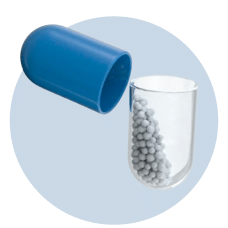Nizral Tablet
Product introduction
Nizral Tablet should be taken in the dose and duration as prescribed by your doctor. They should be swallowed whole and taken with food. The dosage and length of treatment will depend on the condition you are being treated for. Sometimes this will be in cycles of use and non-use. To get the most benefit, take this medicine at evenly spaced times and continue using it until your prescription is finished, even if your symptoms disappear after a few days. If you stop treatment too early, the infection may return and if you miss doses you can increase your risk of infections that are resistant to further treatment. Tell your doctor if the infection does not get better or if it gets worse. Avoid taking antacid treatments within one hour before or two hours after you take it.
The most common side effects of this medicine include stomach pain, headache, feeling sick (nausea), and abnormal liver function. These are not usually serious, but you should call your doctor if you think you might have a severe allergic reaction. Signs of this include rash, swelling of the lips, throat or face, swallowing or breathing problems, feeling dizzy or faint, and nausea. Get emergency help if this happens.
Do not take it if you are pregnant or could become pregnant unless your doctor has told you to. Talk to your doctor before taking it if you have ever had heart failure, a weak immune system (including HIV/AIDS), or liver problems such as yellow skin (jaundice). This medicine may not be suitable for you. If your course of treatment is for more than a month, your doctor may want to check your liver by testing your blood. The drugs may make you dizzy or have blurred vision so do not drive or operate machines until it is safe.
Uses of Nizral Tablet
- Fungal infections
- Severe fungal infections
- Dandruff
Side effects of Nizral Tablet
Common side effects of Nizral
- Nausea
- Vomiting
- Abdominal pain
- Itching
- Diarrhea
- Abnormal liver function tests
How to use Nizral Tablet
Safety advice
All substitutes
Quick tips
- Your doctor has prescribed Nizral Tablet to cure your infection and improve symptoms.
- Do not skip any doses and finish the full course of treatment even if you feel better.
- Take it with food, preferably at the same time every day.
- Do not take indigestion remedies (antacids) within two hours of taking Nizral Tablet.
- Your doctor may check your liver function before starting treatment and regularly thereafter. Inform your doctor if you notice yellowing of eyes or skin, dark urine, or stomach pain.
- Inform your doctor if you are pregnant, planning pregnancy or breastfeeding.
- Inform your doctor if you experience an allergic reaction like skin rash, swelling of face and shortness of breath.
Fact Box
Interaction with drugs
Patient concerns
User feedback
Disclaimer:
Tata 1mg's sole intention is to ensure that its consumers get information that is expert-reviewed, accurate and trustworthy. However, the information contained herein should NOT be used as a substitute for the advice of a qualified physician. The information provided here is for informational purposes only. This may not cover everything about particular health conditions, lab tests, medicines, all possible side effects, drug interactions, warnings, alerts, etc. Please consult your doctor and discuss all your queries related to any disease or medicine. We intend to support, not replace, the doctor-patient relationship.References
- Schimmer BP, Funder JW. ACTH, Adrenal Steroids, and Pharmacology of the Adrenal Cortex. In: Brunton LL, Chabner BA, Knollmann BC, editors. Goodman & Gilman’s: The Pharmacological Basis of Therapeutics. 12th ed. New York, New York: McGraw-Hill Medical; 2011. p. 1233.
- Bennett JE. Antifungal Agents. In: Brunton LL, Chabner BA, Knollmann BC, editors. Goodman & Gilman’s: The Pharmacological Basis of Therapeutics. New York, New York: McGraw-Hill Medical; 2011. p. 1576.
- Chrousos GP. Adrenocorticosteroids & Adrenocortical Antagonists. In: Katzung BG, Masters SB, Trevor AJ, editors. Basic and Clinical Pharmacology. 11th ed. New Delhi, India: Tata McGraw Hill Education Private Limited; 2009. p. 693.
- Briggs GG, Freeman RK, editors. A Reference Guide to Fetal and Neonatal Risk: Drugs in Pregnancy and Lactation. 10th ed. Philadelphia, PA: Wolters Kluwer Health; 2015. pp. 758-59.
Marketer details
The list of available options shown with the same composition has been prepared upon the advice of registered medical practitioners, pharmacists affiliated with TATA 1MG. TATA 1MG does not promote any pharmaceutical product of any particular company, and all recommendations are based on the medical opinion, advisories from specialist medical and pharmaceutical professionals.
Lab tests offered by us










